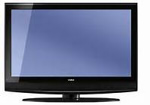RepoMan is a menu driven DOS program allowing technicians and end users to conduct their own data recovery. RepoMan is a 'hybrid', 'real time' data recovery solution; Most data recovery software either aims to extract data from a damaged unit without repairing the logical disk structures as the partition tables, where others concentrate fixing logical damage.
RepoMan is designed to do both and this is why we call it a hybrid data recovery solution. Depending up on the situation, you can choose to repair damaged system structures, or, extract data and move it to a healthy drive or volume.
The software that RepoMan is partially based up on (MBR-Rescue, Rescue Console) has proven itself in many situations 'featuring' catastrophic dataloss (disk shows up as completely unused in FDISK for example). You may be only one reboot away from an up and running system including access to all data.
With real-time we mean basically what it says. For most operations, RepoMan does not require the disk to be scanned for hours. It investigates the drive, and will present its findings to you as soon as if finds something. No huge amounts of memory are reserved to build 'virtual' disk structures in memory causing many other program many memory related errors. RepoMan (which is an executable of less than 50 Kb!) itself only requires DOS real-mode memory (about 200 Kb) and that's it.
RepoMan rebuilds partition tables (FAT, FAT32 and NTFS) from scratch (even when FDISK tells your disk is empty) and can pull off data even when the partition table and/or bootsector and/or the FAT of FAT/FAT32 partitions is damaged.
- 'Drive not ready' message... - 'Drive not formatted' message... - Virus attacked MBR - Virus attacked bootsector - Accidental format - Deleted file/folder - 'Garbaged' root - Deleted drive with FDISK (FAT, FAT32 & NTFS) - That kind of things ... Note that RepoMan can NOT recover from physical damage
RepoMan 2.0 was released by DIY DataRecovery on Tuesday 07 January 2003. Its known requirements are : 80386.
RepoMan will run on Windows 95, Windows 98, Windows Me, Windows 2000, Windows NT and Windows XP.


